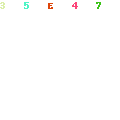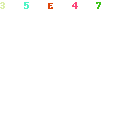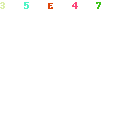Most of the 2009 book contests are closed. The books are and supporting materials are in. The judging is on. The contestants hyperventilate as the countdown continues. Will they be finalists? Actually win?
A nice thing about book contests is that you are an award winner even if you’re “just” a finalist. In the same way that Academy Award nominees get to say, “Academy Award nominee Snelda Grottie” forever, you can say Benjamin Franklin Award Finalist. Being a finalist counts as an award!
I’ve got my book, Numenon: A Tale of Mysticism & Money, in five contests. I’m about to freak out. Should I have entered it in different categories than the ones I entered? Where’s the receipt from that very prestigious competition I took a chance on? I did enter it, didn’t I?
The anxiety will continue for the contestants until the finalists are notified. And longer, until the winner is announced––often at Book Expo America, the largest book publishing event in North America. This year, BEA is May 28 to 31 in NYC.
It’s a little late for an article about setting your book up to win in 2009 book contests, but I’ve got to do something to fill the time.
I’M SANDY NATHAN. So far, I’ve won eight national awards for my two books. I’ll post a list of my wins at the end of this article.
Less well known is the fact that I also have experience as a book contest judge. My writerly credentials, contest wins, and the fact that I graded papers at Stanford’s Graduate School of Business for 18 spring quarters make me an ideal candidate for judging.
I love it, truly. Brings back memories. I used to work for a top rated Stanford professor along with a jaded team of other smart people. Every year, he gave each of us a FOUR FOOT TALL stack of academic papers to grade OVER THE WEEKEND. Brutal.
I got really good at separating fluff from substance. Fast. The books presented to me to judge remind me of those wonderful days of the nonstop pursuit of achievement, which I have not left behind.
HOW CAN YOU WIN A BOOK CONTEST?
If you win a book contest, chances are you already know how to win it. Here’s a story: When the Publisher’s Marketing Association (now the Independent Book Publishers’ Association) notified me that my book, Stepping Off the Edge, was a finalist in the 2007 Benjamin Franklin Awards in the New Age/Spirituality category, I boo-hooed. They choose only 3 finalists per category nationwide, one of which would be the winner. This was the first contest I’d entered. My first book.
“Oh, I can’t believe it. I’m so excited. Oh, my God. I’m so grateful. One out of three finalists! I can’t believe it. This is so wonderful!” I walked around our ranch emoting tearfully. Then something happened.
The overarching category of my writing is spiritually––which is based on spiritual or religious experience. That’s because I have spiritual experiences and have had them all my life. In the cacophony of my inner dialogue, one voice stands out. It’s calm, clear, unaffected, and never wrong. I think of it as God. This voice spoke:
“What’s the big deal, Sandy? You’ve been a straight A student most of your life. Why shouldn’t you win? You know what went into that book.” There was a pause and more communication. “Don’t you trust Me to reward you? To notice that you’ve done a good job? Don’t you think I care about you?”
Oops. My tearful gratitude had the smell of a contestant on a TV quiz show flipping out over winning a new refrigerator. It was an unnecessary display of ego and self importance, which also pointed to my lack of faith.
So let’s leave that behind and talk about how to win.
The key is: If you win a book contest, you already know how to set up a winner. It’s a job of work, like mucking out stalls at our ranch.
Just like winning a horse show class. You win the instant you ride into the arena on a winning horse. Similarly, you win in a book contest the instant the judge looks at the array of books he or she has to judge. Your book has to leap out of the stack of ho-hum contenders and SING. Also tap dance.
HOW DO YOU DO THIS? WITH YOUR BOOK!
1. HARDBACKS SHOW UP BETTER. You’re a judge. Thirty or forty books are sitting on a table. You won’t read all of them. You see well-designed hardback with a killer cover. Your eyes and hands gravitate to it. Wow. It’s beautiful. Paper even feels classy. You put the book in the “keeper” pile. Hardbacks have more weight in competition.

Numenon: A Tale of Mysticism & Money. Your cover should hook the viewers’ archetypes: The symbol in the middle of my cover is based on the photo of a Shiva Nataraj I own. Not only is the circle an archetype of wholeness, Shiva is revered all over the world. Including by me. Note the high contrast and predominately black cover. This design will dominate pretty near anything.
2. YOUR TITLE AND COVER will make you win or sink you. Do you know how to judge a cover? Lewis Agrell of The Agrell Group, will be a guest blogger with his terrific article on what makes a winning book cover. I’ll post it soon.
For now, let’s rely on phone book ads. Open the yellow page ads in any phone book. Scan the page quickly. Where do your eyes land? Note the ad. Do it again on another page, and another.
In all probability, the ad that draws your attention is SIMPLE. UNCLUTTERED. EITHER BLACK, WHITE, OR MOSTLY EMPTY. The ads that grab your eyeballs and hold them have attained PAGE DOMINANCE. People hire consultants to create dominant ads for them.
Now go to a book store sale table and look at the books. Which books grab your eyes? Which do you pick up? Buy? A book contest is like that table. Clear, bold, design that dominates the competition will win.
YOUR COVER MUST HAVE AN EMOTIONAL HOOK. THINK ARCHETYPES. Primal images. Something that grabs the inner psychology of your reader/judge.
To win and much more importantly, to be purchased, your book cover AND SPINE must dominate any table and any bookshelf.
3. YOUR TITLE IS REALLY, REALLY IMPORTANT. First off, your title embodies your book’s essence. It is the first word or words the reader sees. It should be engaging, easy to read, evocative, and compelling––it should set the emotional tone for your book. As should the SUBTITLE or TAG LINE (THE ONE LINE DESCRIPTION BELOW THE TITLE.) Also, most of the big catalogs of books will list your book by its TITLE ONLY. Better be memorable. Like Twilight.
4. THE WORDS ON YOUR COVER, FLAPS, AND FIRST FEW PAGES OF YOUR BOOK, YOUR BOOK’S COPY, SHOULD BE UNFORGETTABLE. These words are your prime real estate and are what will make your book succeed. The book contest judge, book store owner, and your buyer will make a decision about your book based on these words––in seconds. You want emotional hooks, ease of reading, and enchantment in these places.
Writing copy is a skill. You can write text like an angel and not be able to pump out a winning tag line. I’ve got an Emmy-nominated screenwriter Laren Bright, the best copy writer I know, preparing an article for this blog. He’ll tell you how to do it.
I say: Hire it done if you can possibly afford it. Copy writing is like writing poetry: You need to be able to produce succinct messages packed with meaning and emotional associations in a tight space.
5. BOOK DESIGN, INTERIOR & EXTERIOR: YOUR BOOK SHOULD LOOK LIKE RANDOM HOUSE PRODUCED IT. NO LESS. We’ve talked about the cover, title, and copy. Every page and every word should be as well designed as your cover. Go to a book store and look at best selling books. Get a copy of the Chicago Manual of Style and memorize the order of pages in a book.
A very important thing to note: NEVER HAVE YOUR TITLE PAGE ON THE LEFT. DO NOT DO THAT. Do your homework. Know the proper order of pages in a book. Know what a half title page is and where it goes. The contest judge will know all about this.
6. SELF PUBLISHING, SMALL PRESSES, THE MAJORS: Some contests are specifically for self published books, by that I mean books put out by the big POD printers like lulu.com, iUniverse, Outskirts Press, BookSurge and the rest. If this is your competition, let your lulu imprint show.
If you’re in open competition, hide it. Some people have real prejudices against self-published books. There’s not as much of a prejudice against author-owned small presses––after all, Benjamin Franklin did it. So did Mark Twain, DH Lawrence and tons of big literary names. If you own and operate a small press, that puts you in a different category, even if your book was printed by CreateSpace or Outskirts Press. Just make sure that nothing about the mass producers shows.
If you take this approach, create a killer logo and press name, and have the book professionally designed and produced, you’ll be in good shape to compete in contests.
I have no prejudice against self-published books. I have a real bone to pick with poorly produced self-published books whose authors don’t respect me––the buying customer and reader––enough to get the thing professionally edited and proofed before offering it for sale. Or stick it in my face and expect me to judge it.
DO NOT PUT YOUR BOOK UP FOR SALE UNTIL IT IS TOP QUALITY IN EVERY WAY. YOU ARE CHEATING YOUR READERS WHEN YOU OFFER SLOPPY WORK.
7. PROFESSIONAL PRODUCTION: The book contest judge may not have time to read all of your book, but he or she will sure sample pages and text. Typos, lousy interior and exterior design, cheap paper, all of it pops out. Hire an editor, copy editor and proofreader. Hire a book designer. Believe it or not, they’re not all super expensive. Look at my blog roll. Some great professionals are listed there.
TEMPLATES: Many of the big POD publishers offer templates for book interiors. These don’t show up well in contests. The text is set too tight, and the margins too small. There’s not enough variety in the overall design. In contests, judges see many books with very similar, standard interiors. If your book is one of thirty in a category, or one of THREE HUNDRED, it has to stand out. Templates won’t do it.
8. PERIPHERALS: YOUR WEB SITE, STATIONERY, & PRESS KIT. You did include those with your entry, didn’t you? I assure you, the winners did. The book contest judges are very likely to check your website, especially if you make it through enough of the hoops to stay in “the good pile” to the end. The “ad-ons” are breakers.
Two books might be ranked about the same, but if one author has an amazing web site and hosts a blog with a bazillion visitors a day providing a vital services to the world––who do you think will win? Ditto if on author provides copies of his book’s terrific reviews, testimonials, and advertising materials in a lovely custom folder. Which book will win?
Oh, yeah. What about the VIDEO FOR YOUR BOOK? Is that linked prominently on your site? Mentioned in your press kit?
9. THE BOOK, AS IN––WHAT’S BETWEEN THE COVERS? In your writing group, you concentrate on the writers’ skills and arts. Word by word, you construct and deconstruct and reconstruct your masterpiece. Ditto working with your editor. Your write, rewrite, have it slashed and burned, and make it rise again. You struggle to express exactly what you want, worry about pacing and plot and characters.
I was in two writing groups for a total of eleven years. I’ve worked with maybe six or seven good, tough editors. The content of your book matters, especially if you want it to sell. If you want word of mouth to propel it. If you want to read it yourself in future years and not be embarrassed by it.
The contest judge or panel of judges isn’t going to read all of your book. They’ll sample it and look at different aspects of it.
Does that mean you can skip the 11 years of writing groups and all those creative writing classes? No. Whatever random page a judge’s eyes fall upon will produce an impression. All the pages have to be good, since you don’t know which one will be read. Know what terms relating to race, ethnicity, or sexual preference are OK to use in modern literary and cultural circles. Get it right.
The curious thing is: Most people writing in academic settings concentrate solely on the quality of their manuscripts. They don’t look at any of the other points noted here, any of which can destroy their chances of winning a book contest or selling. That’s because in the major creative writing and MFA programs, people assume that they will be published by the major publishers.
They haven’t had direct experience of the realities of the publishing industry. Such students often have no idea that to succeed, they may have to set up a small press and learn to do things they never were taught in school. Academic programs may not talk about the recession and cut-backs and literary agents being laid off, either.
The real world can be a big surprise, even if you got your MFA from Iowa.
Producing a book that wins contests is a big job requiring a commitment of time and money. It doesn’t have to be a HUGE commitment of money, but its going to cost something. Before you enter a contest, you should know what you’re up against.

- Some of the awards won by Rancho Vilasa. A few of these are my wins. The real victory that comes from athletic competition is a winning of soul, which is transferable to other endeavors. If you can show a horse and win, you can do anything.
To win in a horse show, you need a horse that grabs the judge’s eye the instant he enters the arena. He needs the stamina to look good at the end of a grueling class. For book contest, you need a book that’s set up to win from one end of the judging process to the other. And then into the marketing arena.
That’s it, folks! Happy competing!
Sandy Nathan, award winning author of Numenon & Stepping Off the Edge. I’m a bit burnt out writing about winning. Here are some links to what I’ve won in book contests:

With horses, you win the minute you walk into the arena. This is a Matched Pairs Class at the La Bahia Peruvian Horse Show in Watsonville, CA. My husband and I are riding horses that are full brothers––same mom & pop. Except for the extra chrome (white markings) on Azteca, these horses pass for identical. The judge told us after the class, "You won that class the minute you walked into the arena." Your book will win or lose the same way.




